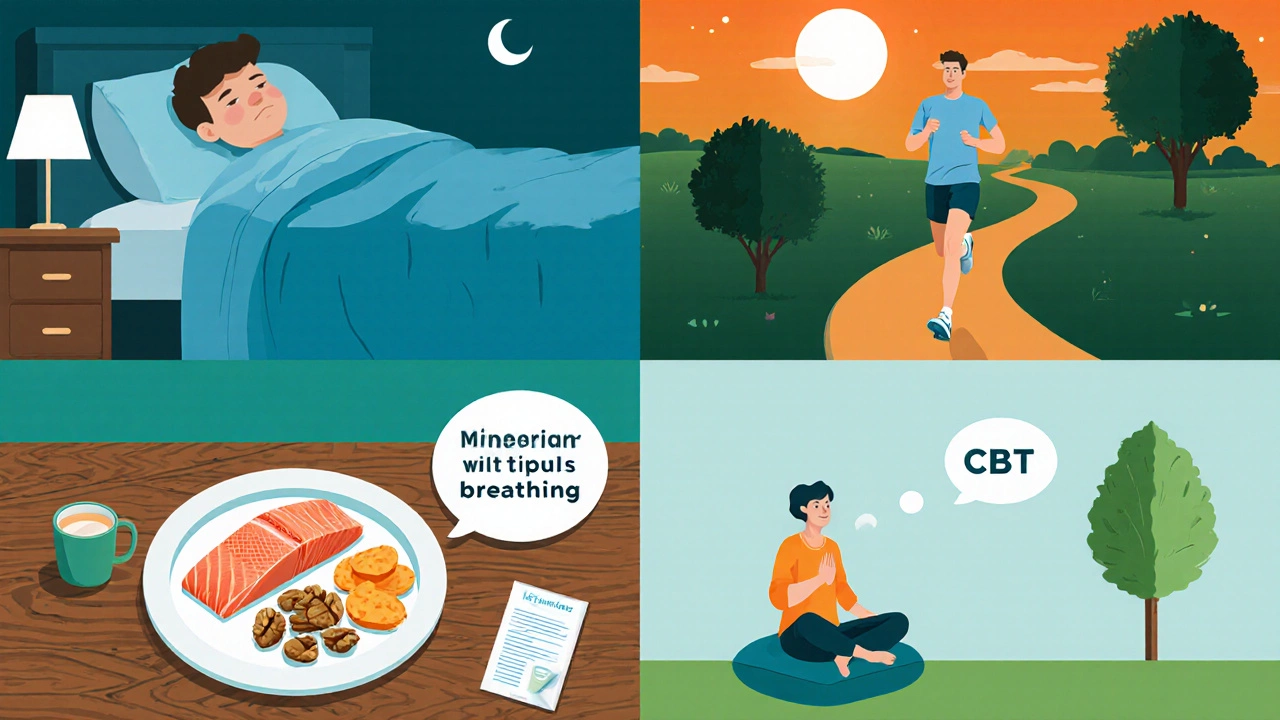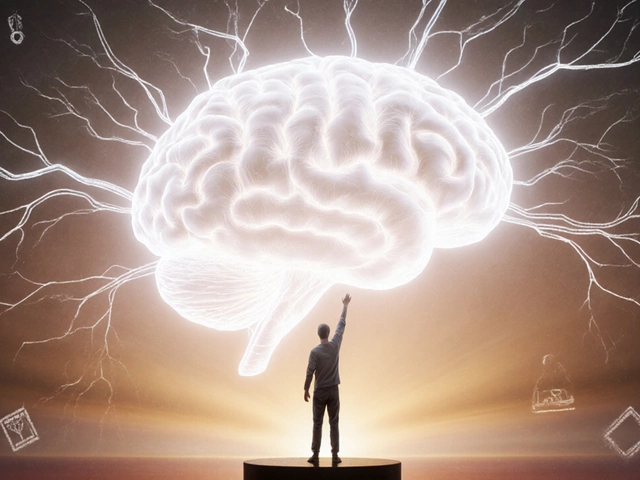When we talk about Mental Strength is a psychological capacity to stay calm, focused, and motivated under pressure, most people picture superheroes or athletes. The truth is far simpler: anyone can train their mind the way they train a muscle. Below is a hands‑on guide that walks you through the exact habits, mind‑techniques, and daily tweaks you need to stay strong mentally.
What Mental Strength Really Means
Instead of a vague buzzword, think of mental strength as a set of three measurable abilities:
- Emotional regulation: bouncing back after a setback without spiraling.
- Focused attention: staying on task even when distractions scream.
- Purposeful action: choosing actions that align with long‑term goals, not short‑term mood.
These pillars are backed by decades of psychology research. For example, a 2022 longitudinal study of 1,200 adults showed that people scoring high on all three pillars reported 30% less perceived stress and 22% higher job satisfaction.
Lay the Physical Foundations First
Before you tackle mental tricks, secure the body‑level basics. The brain runs on the body’s fuel, so neglecting sleep, movement, or nutrition quickly erodes mental stamina.
Sleep is a restorative state that consolidates memories and clears neuro‑toxic waste. Aim for 7‑9 hours of uninterrupted sleep. A 2023 meta‑analysis linked each extra hour of sleep with a 12% boost in cognitive flexibility, a core component of resilience.
Physical Exercise is a structured activity that elevates heart rate and releases endorphins. Even a 20‑minute brisk walk triggers the release of brain‑derived neurotrophic factor (BDNF), which supports learning and mood regulation.
Nutrition is a set of dietary choices that provide essential micronutrients for brain health. Prioritise omega‑3‑rich foods (salmon, walnuts) and complex carbs (sweet potatoes) to keep blood‑sugar steady, preventing mood swings.
Mind‑Level Techniques That Build Resilience
Once the body is in sync, add these mental tools to sharpen emotional regulation and focus.
Mindfulness is a practice of non‑judgmental present‑moment awareness. Start with a 5‑minute breath‑focus session each morning. Studies from Harvard in 2021 found that daily mindfulness reduced cortisol levels by 18% after eight weeks.
Positive Self‑Talk is a structured internal dialogue that replaces criticism with constructive language. Write down three affirmations related to your current challenges and repeat them before high‑stress events. Research shows that this simple habit improves performance under pressure by up to 14%.
Cognitive‑Behavioral Techniques is a set of strategies that identify and reframe distorted thoughts. When you notice a catastrophic thought (“I’ll never get this done”), ask: “What evidence supports this? What evidence contradicts it?” Reframing sharpens focus and reduces anxiety.

Goal Setting and Purpose: The Compass for Mental Strength
Clear, meaningful goals give your brain a roadmap, making it easier to stay disciplined during setbacks.
- Write down one long‑term vision (e.g., “Run a half‑marathon in 2026”).
- Break it into quarterly milestones.
- Track progress weekly; celebrate micro‑wins.
This habit aligns with the “implementation intention” principle: specifying the when, where, and how of action increases follow‑through by 33% (Gollwitzer, 1999).
Social Support: Your Mental Strength Safety Net
Humans are wired for connection. Isolation accelerates mental fatigue, while supportive relationships buffer stress.
Social Support is a network of relationships that provide emotional, informational, or instrumental assistance. Schedule a weekly check‑in with a friend, mentor, or therapist. A 2020 Finnish study linked strong social ties to a 40% lower risk of developing depression.
Practical Daily Checklist for Mental Strength
Consistency beats intensity. Below is a snapshot you can paste into a notes app and tick off each day.
| Practice | Time Required | Key Benefit |
|---|---|---|
| Sleep hygiene (consistent bedtime) | 7‑9 hrs | Improves memory consolidation |
| Morning mindfulness | 5 mins | Reduces cortisol, sharpens focus |
| Physical movement | 20 mins | Boosts BDNF, lifts mood |
| Positive self‑talk | 2‑3 mins | Enhances confidence under pressure |
| Goal review & planning | 10 mins | Keeps actions aligned with purpose |
Stick with this checklist for at least three weeks before tweaking; the habit loop needs time to lock in.

Common Pitfalls and How to Dodge Them
- All‑or‑nothing mindset: Expecting perfection leads to early drop‑out. Treat missed days as data, not failure.
- Information overload: Reading too many self‑help books can fragment focus. Pick one system and master it before adding another.
- Skipping recovery: Over‑training the mind (e.g., nonstop problem‑solving) burns out resilience. Schedule at least one “digital‑free” hour daily.
Addressing these roadblocks early keeps your mental muscles from tearing.
Putting It All Together: A 30‑Day Roadmap
- Days 1‑7: Establish sleep schedule and 5‑minute mindfulness.
- Days 8‑14: Add daily physical movement and start a gratitude journal (3 lines each night).
- Days 15‑21: Introduce positive self‑talk and practice a brief CBT thought‑reframe on any stressful event.
- Days 22‑30: Set a concrete 90‑day goal, break it into weekly milestones, and share progress with a trusted friend.
After one month you’ll notice a steadier mood, clearer focus, and a stronger belief that you can handle whatever comes next. That feeling is the core of mental strength.
Frequently Asked Questions
How long does it take to develop real mental strength?
Research suggests that consistent daily practices start showing measurable effects after 21-30 days, but long‑term resilience continues to grow with ongoing effort. Think of it as a marathon, not a sprint.
Can I improve mental strength without exercise?
Physical activity fuels the brain’s neurochemistry. Skipping it may limit the speed of improvement, but you can still make progress through mindfulness, sleep, and cognitive techniques.
Is there a quick fix for stress before a big presentation?
A 5‑minute box‑breathing exercise (inhale 4sec, hold 4sec, exhale 4sec, hold 4sec) can lower heart rate in under a minute and refocus attention.
Do I need a therapist to build mental strength?
Professional guidance is valuable, especially for deep‑seated beliefs, but many core habits-sleep, movement, mindfulness-can be self‑implemented. Use a therapist for personalized CBT if you hit a plateau.
How does social support influence mental resilience?
Supportive relationships provide emotional buffering, perspective shifts, and practical help. Studies show they can cut the risk of depression by up to 40% and accelerate recovery from setbacks.






